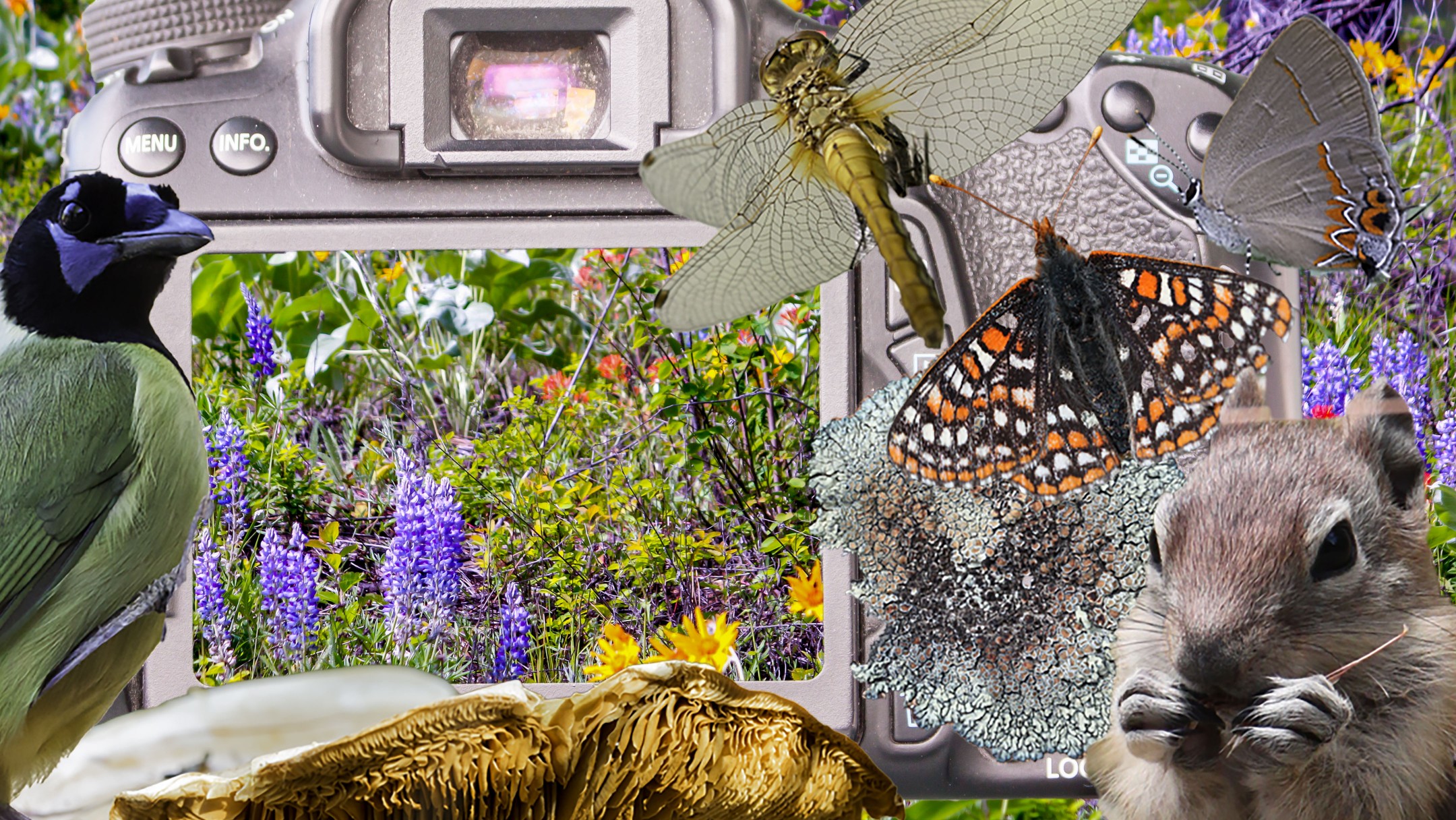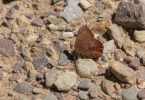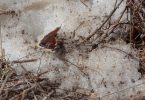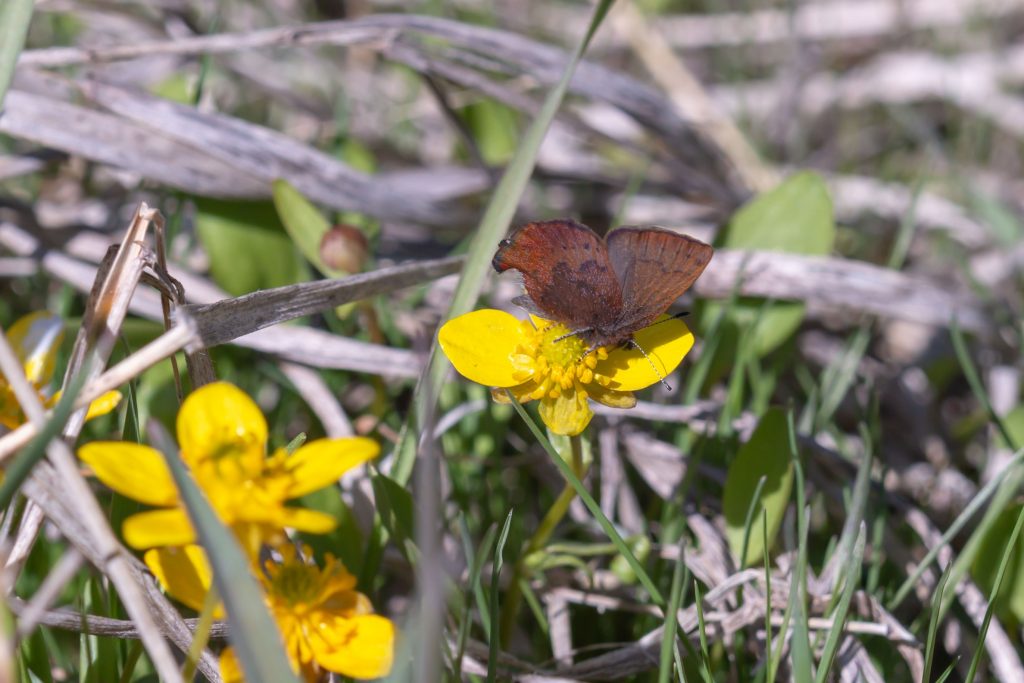
As stated by Glassberg (2017): “Elfins…some of the first butterflies to fly in the spring.” Here in western Montana early to mid-April is when I start seeing them. This kind of applies to other areas of the country that are also really seasonal. Just as important as to when to start looking for Elfin butterflies is, how long a period are adults flying or detectable?
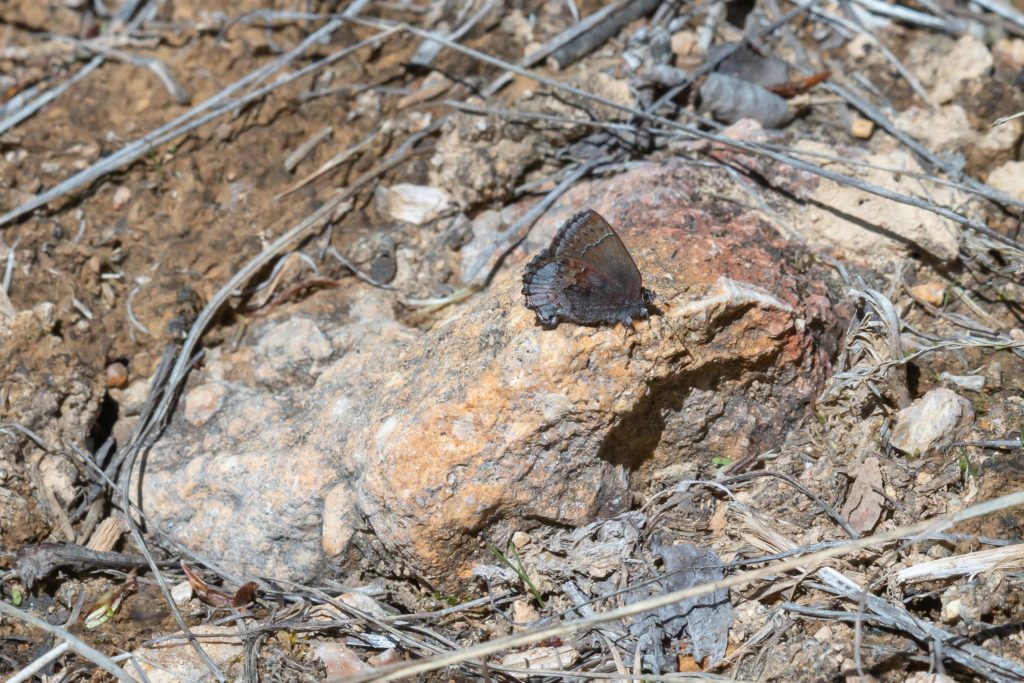
Elfin butterflies lifecycle
Pyle (2003) provides answers for those of us living in the Pacific Northwest which are the months April and May. That’s right, almost as soon as you start looking adults peak in numbers and become increasingly hard to find thereafter. Reasons? They have to quickly find ephemeral food resources, then mates, fertilize and lay eggs mostly in a typical two to three week lifespan!
Window of opportunity
This window of opportunity for finding adults is even smaller when you factor in: current weather (clouds, rain, cool temperatures negate butterfly activity), past climate (wildfires, drought, floods, frosts that impacted populations), your availability (weekends only?), access issues (property ownership change, washed out roads, tree falls), development/management (favorite spot logged, paved, cropped, built on) and mostly, other cool things to find or see!
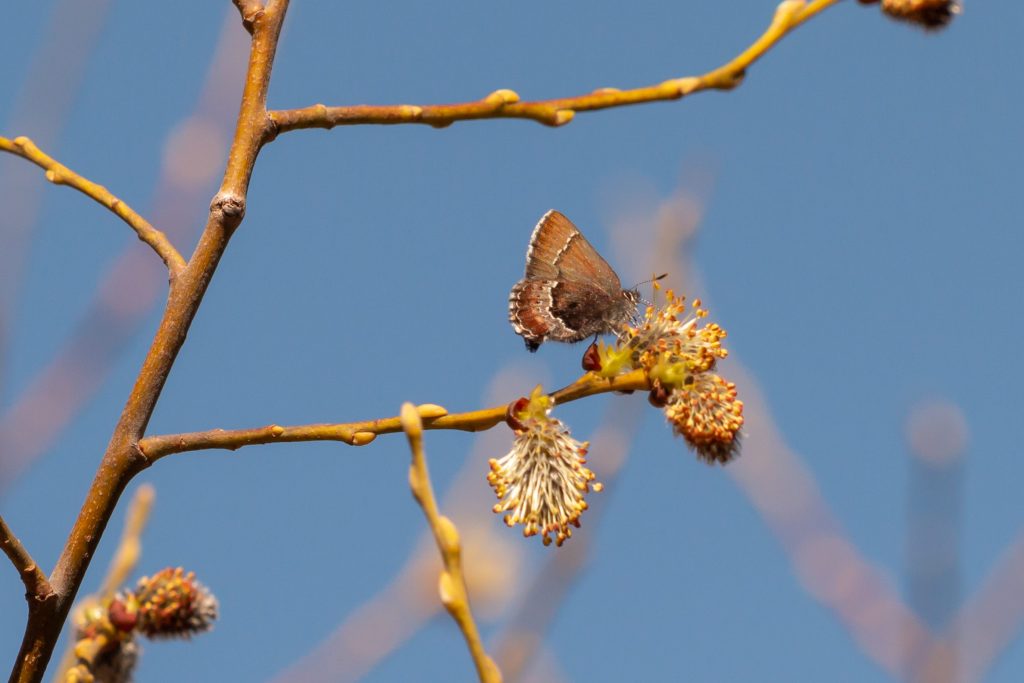
Though small in size, range from 3/4 to 1 1/8 inch wingspan (Opler and Wright 1999), they are hued with iridescent color that brightens with different angles of light, attention photographers! The best part is, they are approachable, not too flighty for sharp frame-filling photos.
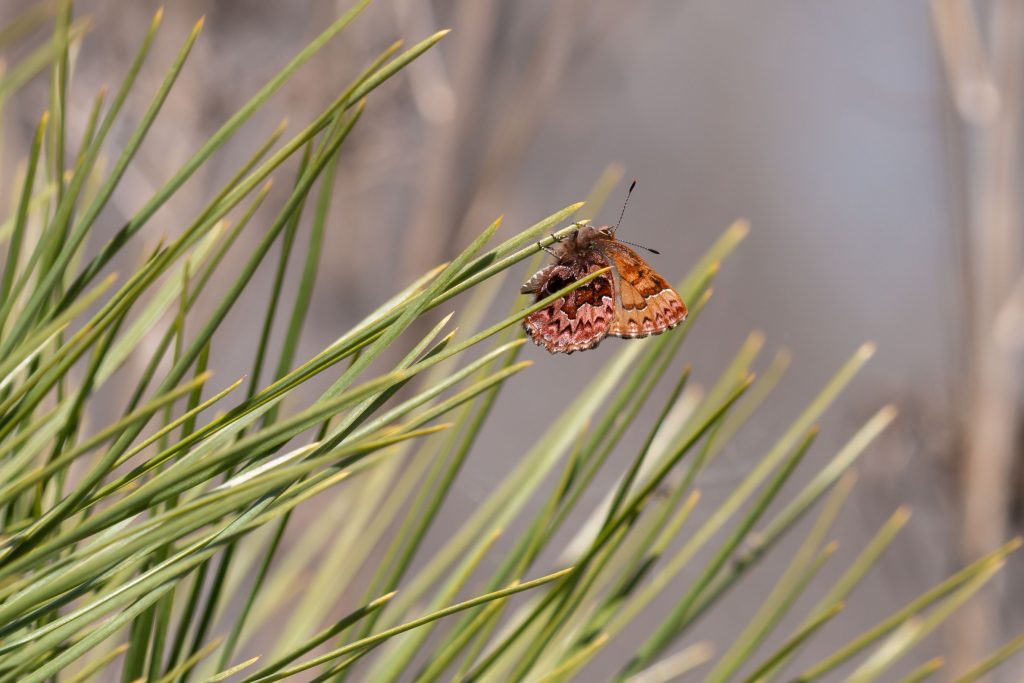
I encourage you pencil in time on your favorite calendar to not only look for these butterflies, but to do important groundwork beforehand (how-to identify, preferred habitats, current status [common or rare], public lands to search, larval host plants). I welcome feed back or photos of success in the comments of this post 😉


